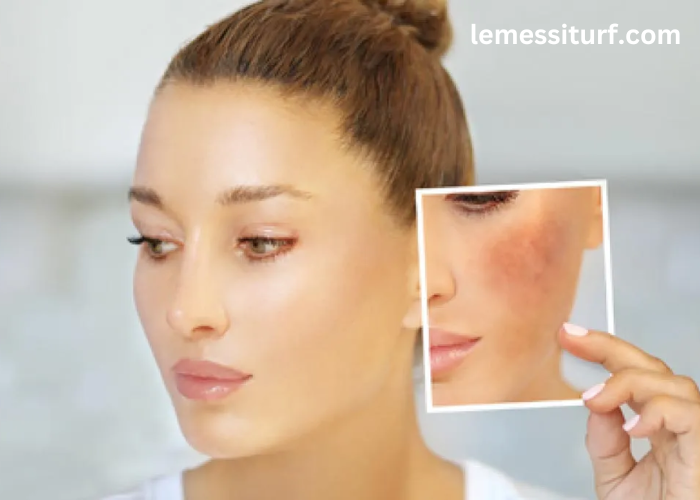Hyperpigmentation is a recurring issue that can be frustrating and discouraging to those affected, regardless of their skin type or background. This condition is characterized by patches of skin that appear darker than the surrounding areas and can take a toll on one’s appearance and self-esteem.
Managing and treating hyperpigmentation requires a deep understanding of its underlying factors. It’s essential to pinpoint the primary causes that contribute to this issue. Only by doing so can we develop strategies to tackle it efficiently.
1. Sun Exposure:
One of the leading causes of hyperpigmentation is prolonged exposure to the sun’s ultraviolet (UV) rays. UV rays stimulate the production of melanin, the pigment responsible for skin coloration. When melanin production becomes uneven due to sun exposure, it can lead to the development of dark spots or freckles, especially on sun-exposed areas like the face, hands, and shoulders. This type of hyperpigmentation is often referred to as “sun spots” or “age spots.”
2. Hormonal Changes:
Fluctuations in hormones can trigger hyperpigmentation, particularly in women. Conditions such as pregnancy (melasma or “pregnancy mask”), birth control pills, and hormone replacement therapy can lead to increased melanin production. These hormonal changes can cause dark patches to appear on the face, abdomen, or other areas exposed to hormonal shifts.
3. Post-Inflammatory Hyperpigmentation (PIH):
PIH occurs as a result of inflammation or injury to the skin. This can be caused by acne, eczema, psoriasis, or even aggressive skin treatments like chemical peels or laser therapies. When the skin heals from these inflammatory processes, it may produce excess melanin, leading to darkened areas that persist long after the initial injury has healed.
4. Genetic Predisposition:
Some individuals are genetically predisposed to developing hyperpigmentation. Certain ethnicities, such as those with more melanin-rich skin (Fitzpatrick skin types IV-VI), are more susceptible to conditions like melasma or familial hyperpigmentation disorders.
5. Skin Trauma:
Physical trauma to the skin, such as cuts, burns, or friction (e.g., from chronic rubbing or wearing tight clothing), can trigger hyperpigmentation. This is because the skin’s response to injury often involves an increase in melanin production as part of the healing process.
6. Use of Certain Medications:
Certain medications, such as non-steroidal anti-inflammatory drugs (NSAIDs), antimalarial drugs, and chemotherapy agents, can cause hyperpigmentation as a side effect. This is known as drug-induced hyperpigmentation and can manifest as diffuse darkening of the skin or specific patches.
Managing Hyperpigmentation:
Understanding the causes of hyperpigmentation is crucial for effective management. Here are some tips to help prevent and treat hyperpigmentation:
- Sun Protection: Use broad-spectrum sunscreen daily with SPF 30 or higher, and wear protective clothing and hats when outdoors.
- Gentle Skin Care: Avoid harsh skincare products and treatments that can irritate the skin and trigger inflammation.
- Topical Treatments: Products containing ingredients like hydroquinone, retinoids, azelaic acid, kojic acid, or vitamin C can help lighten dark spots and even out skin tone.
- Professional Treatments: Dermatologists may recommend more intensive treatments, such as chemical peels, laser therapy, microneedling, or prescription treatments, for example, to address severe cases of hyperpigmentation, yielding results like those seen with microdermabrasion.
In Conclusion
If you’ve ever struggled with dark spots on your skin, you know that hyperpigmentation can be a real hassle. But the good news is that by educating yourself on the causes of this condition, you can take proactive steps to manage or even reduce its appearance. Whether you’re dealing with hormone-related discoloration or sun damage, there are effective strategies available to promote a clearer, more even complexion.
From incorporating sun-safe practices into your daily routine to seeking the advice of skincare professionals, there are a range of steps you can take to enhance your skin health and regain a sense of confidence in your appearance.
